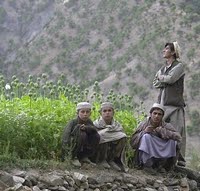
Matthew C. DuPée’s WPR briefing last week on Afghanistan’s counternarcotics efforts skillfully analyzes how U.S, U.N. and Afghan policies are failing to achieve an enduring reduction in the country’s opium production. Now neighboring governments, especially Russia, are growing increasingly worried that NATO’s withdrawal of combat troops from Afghanistan will force them to confront the problem largely by themselves. At present, the main threat Russia faces from Afghanistan comes in the form of Afghan narcotics exports. According to the United Nations, Russians are consuming much of the recent surge in Afghan narcotics production, which has occurred despite stagnant or even declining […]

